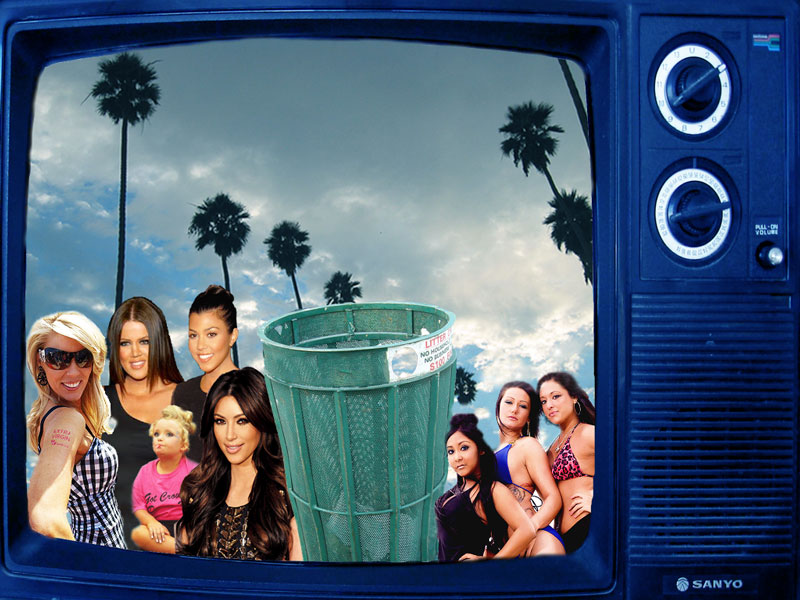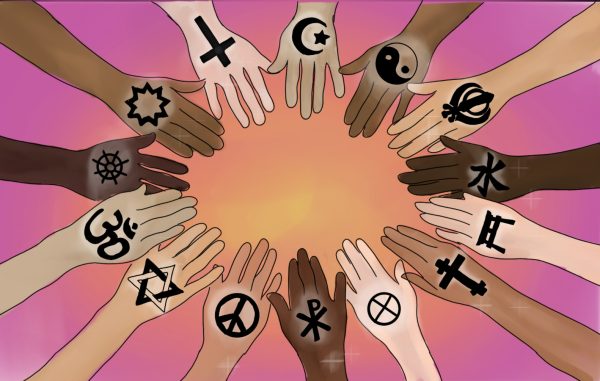Schadenfreude
May 17, 2023
Schadenfreude n. pleasure derived by someone from another person’s misfortune.
When I think of the word Schadenfreude (a word my English teacher has used very many times) I ask myself the question:
Do we, as a modern society, derive pleasure from other people’s misfortune?
It’s something to think about, and possibly something you’ve never really considered before. I mean you probably don’t love to see violence or warfare (I hope), so maybe you’re asking, ‘How could I possibly relate to this?’
The thing is though, modern media and entertainment often capitalises on other people’s suffering for views, likes and other general interest. But is society taking this too far?
When you think of reality TV, what’s the first show that comes to mind? When I was brainstorming, I could think of a bunch, and I was surprised myself at how many of these capitalise on the misfortunes or uncomfortableness of others for content. Just look at ‘Married at First Sight’, ‘I’m a Celebrity … Get Me Out of Here!” or “Survivor.”
Studies show that each of these 3 reality TV shows make up some of the top 10 in Australia. (Australian Survivor as number 2, MAFS as number 4, and I’m a celebrity at number 5 – MediaWeek, 9/12/22).
There’s something about these shows that must appeal to audiences, perhaps through a baseline satisfaction at seeing others suffer. Who really knows?
The answer is that no one really does yet. Many studies have been conducted, and expert psychologists and psychiatrists have suggested varying reasons for the popularity of reality TV, as well as the profile of viewers of this type of media entertainment.
Results of a study (Why People Watch Reality TV – 2004) by S. Reiss and J. Wiltz of The Ohio State University suggest “that the people who watched reality television had above-average trait motivation to feel self-important and, to a lesser extent, vindicated, friendly, free of morality, secure, and romantic, as compared with large normative samples.”
Additionally, personal anecdotal evidence from a variety of websites suggests an escapism influenced mindset. One blogger summarised this experience, writing, “During the time that we are watching other people’s challenges and conflicts, we are able to forget our own lives. We find ourselves having thoughts like, “Well, at least my life isn’t that bad.” We may even think, “So-and-so is gorgeous and rich and even SHE doesn’t have it all together.” (A.G. McLaughlin, MA, LCMHC – 21/09/2021)
Conversely, Dr Carole Lieberman, M.D., media psychiatrist and reality TV consultant said “We live vicariously through the experiences of the reality TV stars, from the safety of our own homes. We don’t actually have to risk our heart or our reputation when we vicariously live through the experiences of the reality show participants.” So, maybe we don’t particularly enjoy seeing other people experience misfortune but are instead grateful for the vicarious experience of something we would not want to do or may not properly experience. Moreover, reality shows can act as an exercise in the exploration of morals or values. “The basic question of self-interest versus self-sacrifice is a theme that runs through most reality shows. These themes of good and bad behaviours, betrayal, competition, and connection are familiar to us; we make similar decisions every day, minus the cameras, artificial scenarios, and publicity. It calls to us because on a very basic level, we love human drama, and we relate to tough decision and when we root for our favourite reality show participant, we are identifying something compelling within them, and this may say a lot about us if we choose to explore it.” (T. Smith, Psychology Today, 12/4/22).
Another suggested psychological reason for continual mass engagement is related to empathy. Dr Jana Scrivani, clinical psychologist, “Reality television in particular gives us a false sense that we really know the people we see on the screen. This sense of having a personal relationship is amplified with the ‘reality’ label, even though we are aware that its greatly exaggerated. Close ties between family and friends are at all-time lows. Over time, we come to see the folks portrayed on the screen as friends. We identify with their struggles and triumphs. It’s much less time consuming to take in a half an hour television show than to connect with a friend.”
So, does modern society enjoy seeing people’s misfortune? The cynical part of me wants to say yes, but with a lack of conclusive evidence, I don’t think this can be an accurate summary of understanding of the multitudinous theories regarding audience engagement and interaction with reality TV and other forms of media, and the motivations behind these.
Sources:
- Bhattacharya, R. (2020, November 6). The strange psychology behind why people love watching reality shows despite the cringe factor. ScoopWhoop. Retrieved April 29, 2023, from https://www.scoopwhoop.com/entertainment/psychology-behind-why-people-love-watching-reality-shows/
- Mackenzie, M., & Nobel, E. (2022, December 7). Watching vicariously: The psychology behind reality TV. ABC Radio National. Retrieved April 29, 2023, from https://www.abc.net.au/radionational/programs/lifematters/watching-vicariously-the-psychology-behind-reality-tv/101742788
- McLaughlin A.G, M. A. (2021, September 21). The psychology of reality TV. Medium. Retrieved April 29, 2023, from https://medium.com/@wellwaycounseling/the-psychology-of-reality-tv-434144a76088
- Mediaweek. (2022, December 9). Meltwater Data reveals the top streamed Australian reality TV shows of 2022. Mediaweek. Retrieved April 29, 2023, from https://www.mediaweek.com.au/meltwater-reveals-top-streamed-australian-reality-tv-shows-of-2022/
- Reiss, S., & Wiltz, J. (2004). Why people watch reality TV. Media Psychology, 6(4), 363–378. https://doi.org/10.1207/s1532785xmep0604_3
- Smith, T. (2022, April 12). How reality shows affect our lives and society. Psychology Today. Retrieved April 29, 2023, from https://www.psychologytoday.com/au/blog/living-finesse/202204/how-reality-shows-affect-our-lives-and-society
- The psychology behind reality television shows. Electronic World TV Blog |. (2015, October 21). Retrieved April 29, 2023, from https://www.electronicworldtv.co.uk/blog/the-psychology-behind-reality-television-shows













